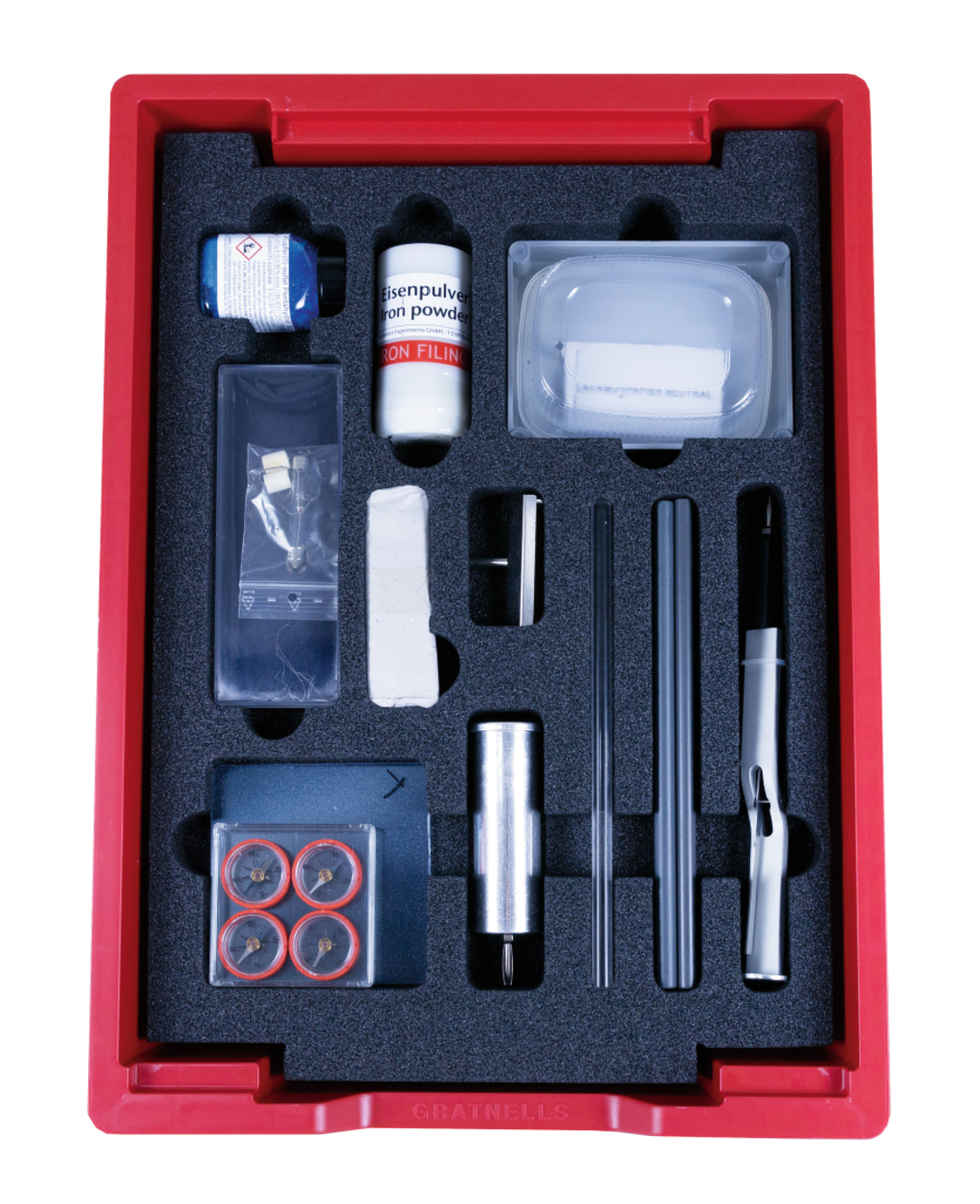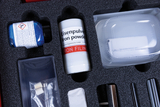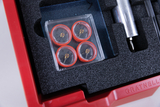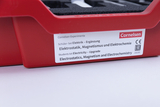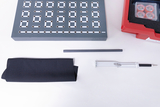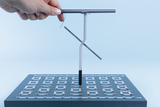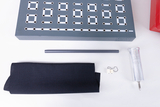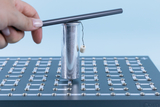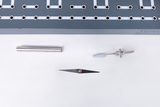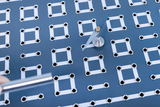Students kit Electricity – Upgrade Electrostatics, Magnetism and Electrochemistry
Experiments to illustrate the properties of permanent magnets
Experiments on the detection and behavior of electric charges
Experiments on the basics of electrochemistry
The components of this supplementary set are stored in a separate tray.
Static electricity or friction is a type of charge separation. This creates a charge difference on the different bodies.
This experiment shows how charged bodies behave when approaching.
The students build a pendulum from pieces of elderberry pulp and examine the electrical state.
The experiment shows the effects when the charged plastic rod approaches the uncharged plastic rod.
The experiment shows the influence on the electroscope.
The experiment examines the electrical state when a charged plastic rod touches a metal cup and a glow lamp inside the metal cup.
The experiment shows the effect of a pendulum piece with an electrically charged plastic rod.
In this experiment, the magnetic properties of different metals are tested.
The magnetic field is a special state of space in which electrically charged bodies are attracted or repelled.
The force of magnets means that like poles attract and different poles repel.
The way a compass works means that the needle always points to the geographic north pole, which is the same as the physical south pole. Therefore, it can be said that the earth is a great magnet.
Electrolysis is used to break down chemical elements under the influence of an electric current.
In this experiment, the influence of a copper sulphate solution when an electrical voltage is applied is examined.
In this experiment, the chemical processes occurring when the electrodes are immersed in the acidic electrolyte are observed.
The experiment shows the change in the electroscope when its electrode is touched with an electrically charged plastic rod.
Magnetic influence refers to the magnetization of ferromagnetic materials. This happens when they come into a magnetic field strong enough to align their elemental magnets.
In this experiment, the chemical processes are observed using different substances when the electrodes are immersed in the acidic electrolyte.
- 1 × Foam insert for 23230 390/275/58 mm
- 1 × Carton for SEG (small tray)
- 1 × Plastic box, 140x50x25mm
- 1 × Compass, small, set of 4
- 1 × Friction rubber, silk
- 1 × Friction rubber, wool
- 1 × SEG Lidfoam, grey 10 mm
- 1 × Litmus paper, neutral 1 leaflet
- 2 ×
- 1 ×
- 1 × Screen translucent, plastic 90x90x1 mm
- 2 × Stand rod, plastic 200x8 mm
- 1 × Perspex-rod, 200x8 mm
- 1 × Electroscope with insulated rod and 4 mm plug
- 1 × Metal beaker with plug
- 1 × Pith ball pendulum
- 1 × °Sifter with iron powder
- 1 × Pivot bearing for friction rods and magnets
- 1 × Base with receptacle
- 1 × Zinc electrode
- 1 × Copper electrode
- 1 × Iron electrode
- 1 × Glow lamp, festoon, 70/90 V set of 5 pcs.
- 1 × Copper sulphate, 50 g
- 1 × Storing tray, shallow,red
- 1 × Lid for 75028 + 75038
